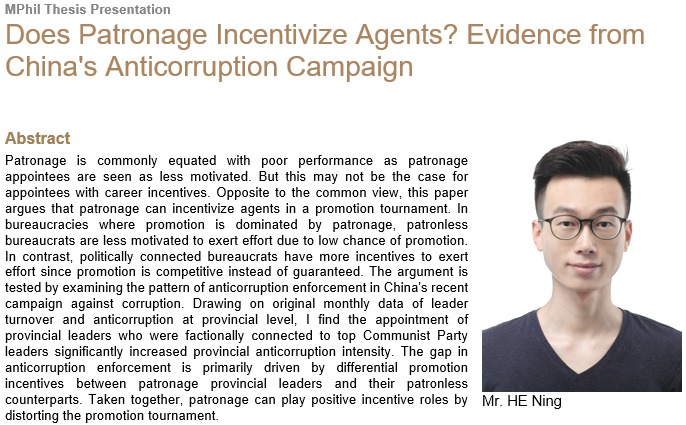Abstract
Patronage is commonly equated with poor performance as patronage appointees are seen as less motivated. But this may not be the case for appointees with career incentives. Opposite to the common view, this paper argues that patronage can incentivize agents in a promotion tournament. In bureaucracies where promotion is dominated by patronage, patronless bureaucrats are less motivated to exert effort due to low chance of promotion. In contrast, politically connected bureaucrats have more incentives to exert effort since promotion is competitive instead of guaranteed. The argument is tested by examining the pattern of anticorruption enforcement in China’s recent campaign against corruption. Drawing on original monthly data of leader turnover and anticorruption at provincial level, I find the appointment of provincial leaders who were factionally connected to top Communist Party leaders significantly increased provincial anticorruption intensity. The gap in anticorruption enforcement is primarily driven by differential promotion incentives between patronage provincial leaders and their patronless counterparts. Taken together, patronage can play positive incentive roles by distorting the promotion tournament.

